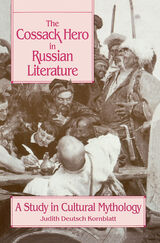
This is the first book to study the development of the Cossack hero and to identify him as part of Russian cultural mythology. Kornblatt explores the power of the myth as a literary image, providing new and challenging readings of Pushkin, Gogol, Tolstoi, and a host of other writers.
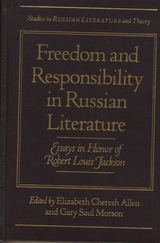
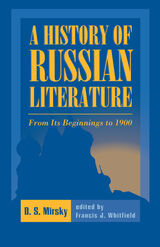
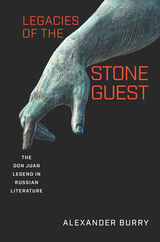
The story of Don Juan first appeared in writing in seventeenth-century Spain, reaching Russia about a century later. Its real impact, however, was delayed until Russia’s most famous poet, Alexander Pushkin, put his own, unique, and uniquely inspirational, spin on the tale. Published in 1830, TheStone Guest is now recognized, with other Pushkin masterpieces, as part of the Russian literary canon. Alexander Burry traces the influence of Pushkin’s brilliant innovations to the legend, which he shows have proven repeatedly fruitful through successive ages of Russian literature, from the Realist to the Silver Age, Soviet, and contemporary periods. Burry shows that, rather than creating a simple retelling of an originally religious tale about a sinful, consummate seducer, Pushkin offered open-ended scenes, re-envisioned and complicated characters, and new motifs that became recursive and productive parts of Russian literature, in ways that even Pushkin himself could never have predicted.
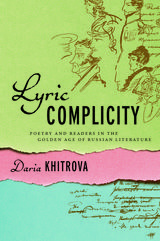
Lyric Complicity helps modern readers recover Russian poetry’s former uses and functions—life situations that moved people to quote or perform a specific passage from a poem or a forgotten occasion that created unforgettable verse.

The period before 1917 was a brilliant one for Russian literature, marked by the innovations and experimentation of modernism. With the Bolshevik seizure of power, a parallel process of drastic social innovation and experimentation began. How did revolution in the arts and revolution in society and politics relate to one another? Victor Erlich, an eminent authority on modern Slavic culture, takes up this question in Modernism and Revolution, a masterful appraisal of Russian literature during its most turbulent years.
Probing the salient literary responses to the upheaval that changed the face of Russia, Erlich offers a new perspective on this period of artistic and political ferment. He begins by revisiting the highlights of early twentieth-century Russian poetry—including the works of such masters as Akhmatova, Mandelstam, and Pasternak—and goes on to examine the major prose writers of the first post-revolutionary decade. In an inquiry that ranges over poetry, criticism, and artistic prose, Erlich explores the work of, among others, Symbolists Bely, Blok, and Ivanov, Futurists Khlebnikov and Mayakovsky, Formalists Jakobson and Shklovsky, the novelists Pilnyak and Zamyatin, the short-story master Babel, and the humorist Zoshchenko. He delineates a complex and ambiguous relationship between Russian literary modernism and the emerging Soviet state.
Here, following the artistic experimentation and cultural diversity begun early in the century, we witness a trend toward regimentation and conformity as the literary avant garde's modus vivendi with the new regime becomes increasingly precarious. As this regime recedes into history, along with the passions and prejudices it aroused, the accomplishments and failures of writers caught up in its early revolutionary fervor can at last be seen for what they were. From a perspective formed over a lifetime of study of Russian literature, Victor Erlich helps us look clearly, judiciously, and deeply into this long obscured part of the literary past.
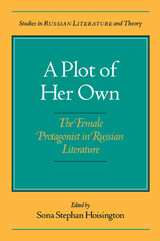
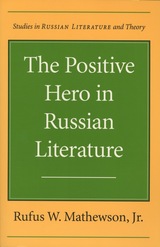
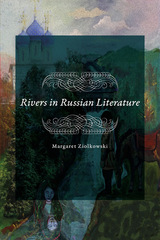
Published by University of Delaware Press. Distributed worldwide by Rutgers University Press.
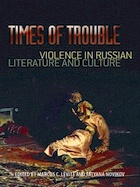
From the country that has added to our vocabulary such colorful terms as "purges," "pogroms," and "gulag," this collection investigates the conspicuous marks of violence in Russian history and culture.
Russians and non-Russians alike have long debated the reasons for this endemic violence. Some have cited Russia's huge size, unforgiving climate, and exposed geographical position as formative in its national character, making invasion easy and order difficult. Others have fixed the blame on cultural and religious traditions that spurred internecine violence or on despotic rulers or unfortunate episodes in the nation's history, such as the Mongol invasion, the rule of Ivan the Terrible, or the "Red Terror" of the revolution. Even in contemporary Russia, the specter of violence continues, from widespread mistreatment of women to racial antagonism, the product of a frustrated nationalism that manifests itself in such phenomena as the wars in Chechnya.
Times of Trouble is the first in English to explore the problem of violence in Russia. From a variety of perspectives, essays investigate Russian history as well as depictions of violence in the visual arts and in literature, including the works of Fyodor Dostoevsky, Isaac Babel, Mikhail Lermontov, and Nina Sadur. From the Mongol invasion to the present day, topics include the gulag, genocide, violence against women, anti-Semitism, and terrorism as a tool of revolution.

READERS
Browse our collection.
PUBLISHERS
See BiblioVault's publisher services.
STUDENT SERVICES
Files for college accessibility offices.
UChicago Accessibility Resources
home | accessibility | search | about | contact us
BiblioVault ® 2001 - 2024
The University of Chicago Press









